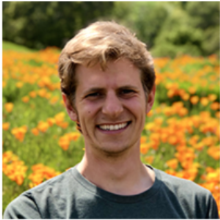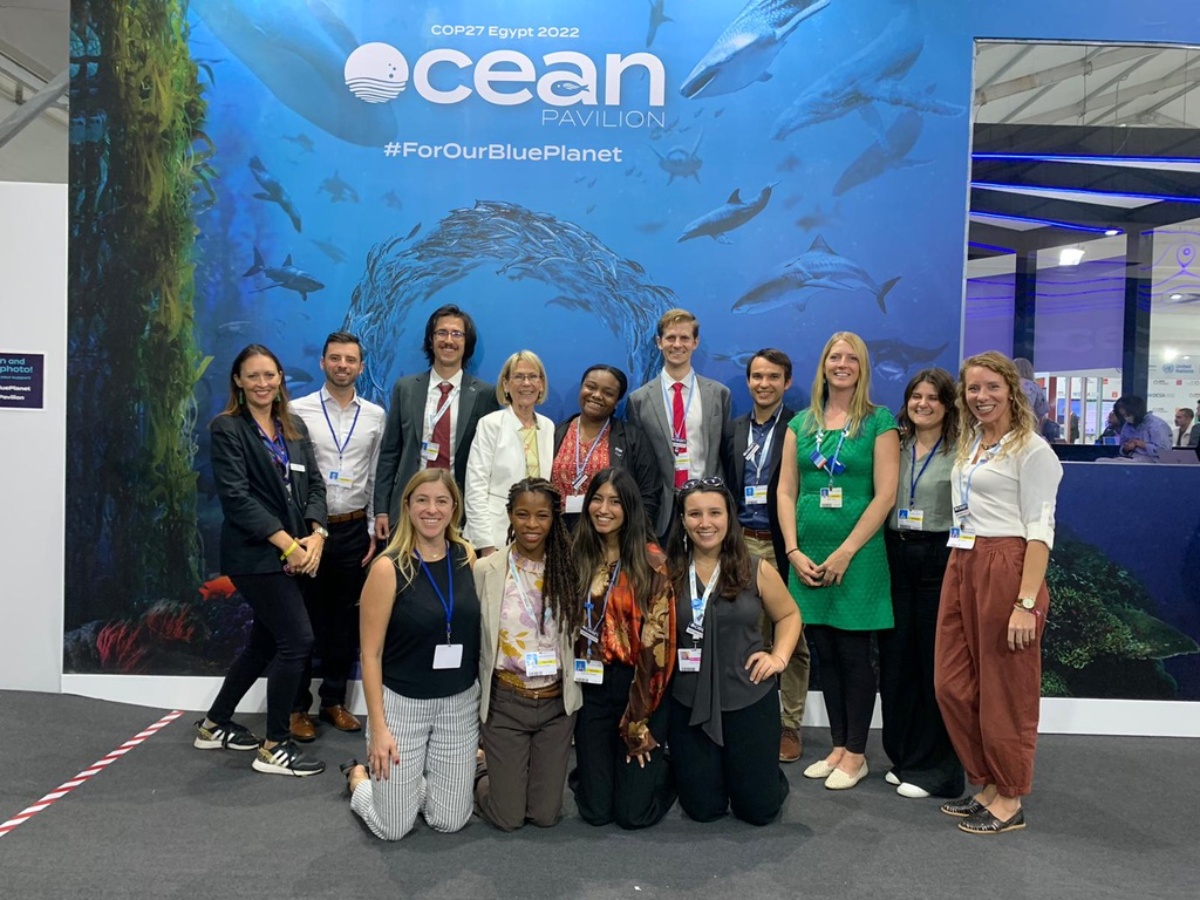
In November, Holden Leslie-Bole ’14 attended the United Nations Framework Convention on Climate Change Conference (#COP27) held in Sharm el-Sheikh, Egypt. Currently a PhD student at UC San Diego’s Scripps Institution of Oceanography, he assisted in running the Oceans Pavilion at the conference along with some of his colleagues from Scripps and UC San Diego’s School of Global Policy and Strategy. While this was Holden’s fifth time attending the conference, the attendees and main topics of negotiation vary from year to year, providing an opportunity to bring back new ideas to integrate into his work and research. “Climate change is a global phenomenon, but it has distinct local impacts that vary regionally. In the U.S., there can be a lack of awareness of the climate work going on in other countries. It is so important to step out of this American bias, include other voices and perspectives, and foster international collaboration on climate change,” says Holden.

As a second-year Physical Oceanography PhD student, Holden’s research focuses on the intersection of coastal process and machine learning, with the goal of understanding how sea-level rise, coastal erosion, and extreme wave events change nearshore geomorphology. He hopes to develop better models of long-term shoreline change to help coastal communities with adaptation efforts. In the context of Holden’s work, adaptation refers to adjustments in infrastructural, ecological, and social systems designed to mitigate damages to coastal ecosystems and populations from climate change. At this most recent conference, he connected with delegates from Togo, Senegal, Nigeria, the Philippines, and Fiji, among other countries, and discussed coastal adaptation strategies. “We’ve experienced severe drought, wildfires, and flooding here in California over the past decade, but many other communities around the world are already experiencing far more catastrophic impacts of climate change.” He adds, “Integrating climate justice into earth science research is a priority for me as I get deeper into this field.”
Holden’s interest in the ocean, climate change, and environmental justice and policy began to take shape while he was a student at Athenian. He recalls how Athenian’s then COO, Bob Oxenburgh, served as one of his mentors, exposing him to local environmental policy through the school's efforts to reduce its own carbon footprint with its 2012 solar installation that still covers 70 percent of the school’s electricity requirements. While he spent much of his time at Athenian in the Makerspace/Airplane Hangar, which has since been replaced with the Carter Innovation Studio, he notes, “Athenian’s holistic education has been foundational to who I am today…taking philosophy classes, playing jazz in band, and falling in love with the outdoors through AWE helped me explore how to live a good life beyond my career. I am who I am today in large part because of all of those influences.” He goes on to say, “The mentors I had at Athenian and the experiential approach to teaching allowed me to follow my curiosity, find my passions, and take intellectual risks.”
Holden’s plan originally was to pursue mechanical engineering in college, but he fell in love with earth science at Yale. “When I went on my first geology field trip, I was fascinated by the way planetary-scale forces shape the environments in which we live. I decided on a double major in mechanical engineering and earth science with a concentration in oceanography so that I could study the intersection of design and climate change. Since being in graduate school at UC San Diego, working on the changing California coastline has a natural area of focus,” he said. “The ocean provides over half of the world’s oxygen, regulates our climate, and sustains diverse ecosystems and food webs, but we still know relatively little about the long-term impacts of climate change on ocean systems.”
Holden has incredible gratitude for Athenian. “It takes a village” says Holden when reflecting on his Athenian experience. He credits his Athenian teachers and mentors–too many to list by name–for helping to set him on his current path. Likewise, the pillars, infused through his seven years at Athenian, continue to be a driving force in his life today.
We look forward to checking back with Holden as he continues his research. Of note, Holden’s sister, Haley Leslie-Bole ’11, also works on climate change, focusing on carbon sequestration in agriculture and forestry as an Associate for the US Climate Program at the World Resources Institute.



















